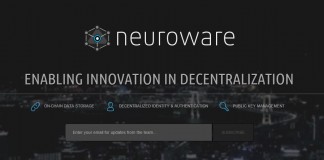LexisNexis Risk Solutions, global big data, technology and analytics firm, has teamed up with Elliptic, a blockchain intelligence company, to work to exposing money launderers, human traffickers, terrorists, and drug dealers who use bitcoin to make illicit transactions. To achieve this Elliptic’s bitcoin transaction monitoring and compliance products are integrating LexisNexis Risk Solutions anti-money laundering data. As a result, Elliptic clients can obtain more information than before by automatically screening bitcoin entities for links to sanctions, enforcements, politically exposed persons, adverse media and state owned companies.
Despite blockchain technology becoming more popular, the financial services industry is still reluctant to embrace cryptocurrencies such as bitcoin and provide banking relationships to bitcoin companies. The lack of financial transparency on bitcoin entities continues to hinder its adoption and LexisNexis and Elliptic hope this new alliance will go some way to mitigating this.
Dr. James Smith, Elliptic CEO and co-founder, commented: “For the first time, Bitcoin companies can leverage bank-grade risk management practices to identify Bitcoin entities that appear on sanction and watch lists from around the world. Having this enriched data set built natively into Elliptic’s products takes Bitcoin AML and KYC controls to the next level.”
Elliptic will use LexisNexis® Bridger Insight® XG platform that includes its WorldCompliance™ database to identify whether bitcoin transactions are linked to identities that are related to fraud, anti-money laundering, corruption or terrorist financing. Elliptic revealed today that the largest dark marketplaces facilitate more than $250 million in annual sales.
Dr. Smith remarked: “The leading Bitcoin companies globally are already using Elliptic products to assess risk on more than $1 billion in Bitcoin transactions each month. By integrating LexisNexis Risk Solutions’ robust watchlist data, we are making it safe for a new wave of financial institutions to handle Bitcoin and bank Bitcoin companies,”
According to Ray Valdes, a Gartner analyst who covers virtual currencies and blockchain technology, the core bitcoin technology stack has functioned with near-flawless operations over its lifetime, a track record that is unprecedented when compared to complex software from commercial vendors; however, the security track record of third-party software in the Bitcoin digital currency ecosystem is dismal. Many exchanges have been hacked — or funds have been stolen — due to a combination of unskilled programmers, poor methodologies and perhaps some criminal intent to defraud from the start. The situation is analogous, in the non-digital world, to a poorly run union or bank going bankrupt; such an event would not call into question the core mechanisms of a dollar-based economy. Because of the near-flawless track record of the bitcoin blockchain and core stack, developers of competing metacoin platforms and technology stacks will have significant work to prove their capabilities to support mission-critical contexts in this regard.
By joining forces together, LexisNexis Risk Solutions and Elliptic represent a new push towards cryptocurrency risk management, AML Compliance and KYC Compliance.
SVP of U.S. Commercial Markets and Global Market Development at LexisNexis Risk Solutions, Thomas C. Brown explained: “This alliance demonstrates how data, technology and analytics can be used in innovative ways to foster financial transparency from China to Germany to the U.S. More banks, Fintech startups, payments companies and eCommerce businesses can further consider the usefulness of the permissionless blockchain because as of today they are able to deploy best-of-breed money laundering screening against Bitcoin. As a result, the virtual currency potential evolves to a new level — from possible conduit for money laundering to trusted technology along the economic value chain.”






